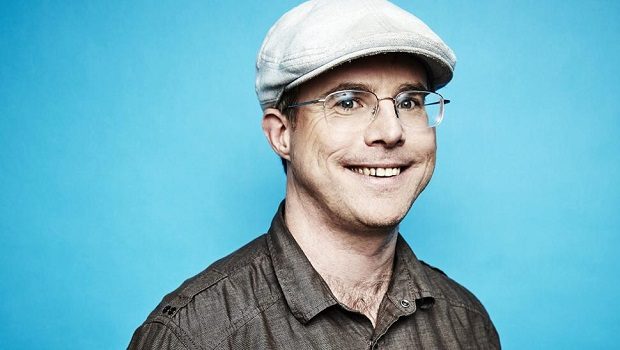A Monument of Success: Who is Andy Weir?
Despite repeated rejections, Weir continued to write. He was now writing as a hobby, and he was sharing his writings on his website so that anyone could read them. Later....

The Martian, one of the most notable films of recent years, is about the determined character Mark Watney, who is stranded on Mars. With extraterrestrial landscapes, ambiguities, masterful acting, and names like Ridley Scott, Matt Damon, Jessica Chastain, and Jeff Daniels, who cares about the author of the book that is the source of the movie, right?
Not.
Andy Weir, author of the 2011 novel The Martian, has an inspiring and very interesting success story.
Weir's story can't exactly be called "rags to riches," but it is certainly extremely original. Born in 1972 as the son of a particle physicist and electronics engineer, Weir was exposed to science and technology from birth and grew up reading science fiction masters such as Isaac Asimov, Arthur C Clarke, and Robert Heinlein and watching a lot of Doctor Who.
Andrew Taylor Weir (born June 16, 1972) is an American novelist. His 2011 novel The Martian was adapted into the 2015 film of the same name directed by Ridley Scott. He received the John W. Campbell Award for Best New Writer in 2016 and his 2021 novel Project Hail Mary was a finalist for the 2022 Hugo Award for Best Novel.
In his twenties, he became interested in computer programming and worked at AOL, writing code for the popular game Warcraft II. Weir's life was turned upside down when AOL merged with Netscape in 1999. He lost his job, but the severance pay he received opened new doors for him: Now he had the time and opportunity to do what he always wanted to do, write fiction.
Although he had tried in this field before, he had failed. He wrote his first novel while studying programming at UC San Diego. According to Weir, this book had a weak plot, weak characters, and a bad style. A copy of the novel still exists, and his mother, who does not want to throw away the book, keeps it in a secret place from his son. After his ouster from AOL, Weir tried his hand at the novel again. Although this attempt was, according to the author, better than his first book, publishers and distributors did not consider it sufficient to print the novel. After repeated failures, Weir returned to the software industry in 2002.
Despite repeated rejections, Weir continued to write. He was now writing as a hobby, and he was sharing his writings on his website so that anyone could read them. In 2009, he decided to reflect his interest and knowledge of space into fiction and began to imagine what a human journey to Mars might be like; What technical problems might arise or what would a human need to survive on Mars? These ideas evolved over time into the cynical protagonist of his novel, Mark Watney, whose survival on this cruel planet depends entirely on his creativity and resourcefulness.
Weir posted episodes of The Martian with twists and turns on his website and soon realized he had several thousand followers. Many of these followers were scientists who offered suggestions to improve the scientific side of the story. In a relatively short time, Weir not only gained a large fan base but also edited and checked his work thanks to his large following. Moreover, he handled these without the need for any publisher or marketing company. The Martian was finished after a while, and Weir turned the series into a novel and published it on his website as a free e-book. However, fans wanted more.
Many of his fans were of the opinion that there should be a Kindle version of The Martian. The author fulfilled this request, and The Martian was now sold on Amazon for the cheapest possible price, 99 cents. Weir actually wanted it to be free, but he didn't have that option. The book sold 35,000 copies in three months and rose to Amazon's bestseller list in the science fiction genre (although Weir does not consider his work to be science fiction because the technology in the book already exists).
Not long after, Weir was making a deal with one of the biggest publishing houses in the world, Random House. Another shocker followed, Fox wanted the movie rights to the novel. While all this was going on, Weir was still working and constantly had to leave his office to take calls related to both the book and the movie. Although devoted to space, Andy Weir had a fear of flying, so he was unable to meet face-to-face with his publisher or anyone else associated with the project.
As a result, the two deals closed within four days of each other, and in the blink of an eye, Weir went from computer programmer to self-published author to print author (the print version of The Martian sold more than a million copies) to the mastermind of one of the biggest budget movies of 2015. In this respect, Weir is not much different from Watney: both are determined and lucky, the perfect combination to overcome seemingly insurmountable obstacles.
